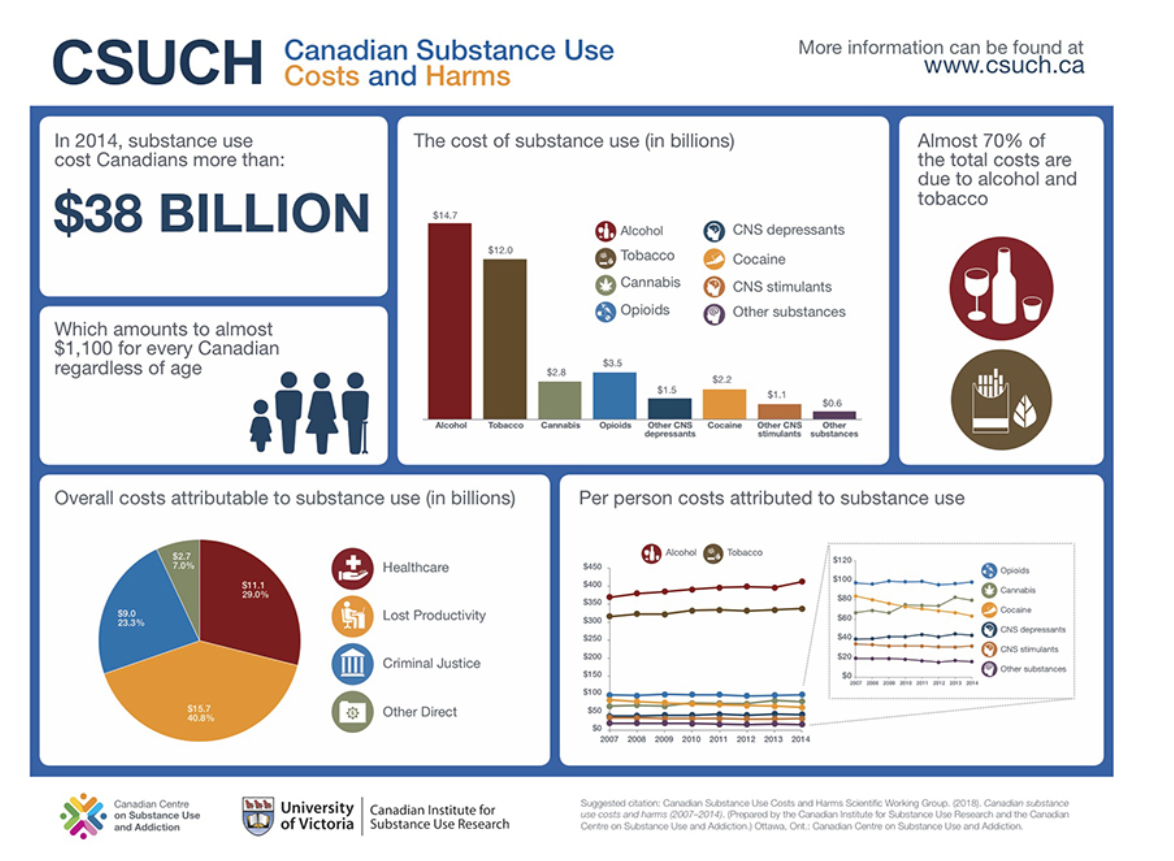Capitalism has dipped itself into many questionable markets, including the most recent debate on assisted suicide and it’s ethics which came to light due to Canada’s allowal of “Medical assistance in dying.” On Mar. 3, in another bold move, Canada has legalized the sale of hard drugs such as heroin and cocaine through licensed companies. The decision has been met with both praise and criticism, with supporters arguing that it could help reduce drug addiction and overdose problems, while critics question the morality and safety of such a move.
“More than 10,000 people have overdosed since a public health emergency for opioids was declared in 2016 in the province of 5 million people. Deaths have hit 30,000 throughout Canada,” HealthDay reported in an article published in the U.S. News.

The Canadian government’s decision comes as the country grapples with a growing drug addiction crisis, with overdose deaths reaching record highs in recent years. By legalizing the sale of hard drugs, the hope is that addicts will have access to clean and safe drugs, reducing the risk of overdose and the spread of diseases such as HIV and hepatitis.
“Canada has spent more than $800 million, the equivalent of $600 million U.S., to try to end the crisis,” CBS News reported. “This includes money spent on addiction treatment, supplies of the overdose antidote naloxone and opening 39 supervised drug consumption sites across Canada.”
So far, only two companies, Sunshine Earth Labs and Adastra have been issued the clearance needed in order to take part in sales and production. The sale of these drugs will be strictly regulated and licensed, with companies required to meet certain safety and quality standards. The government also plans to invest in addiction treatment and harm reduction programs, such as supervised injection sites and naloxone distribution, which is not a completely unheard of method to help those struggling with addiction and has already been implemented and used with the hope to reduce Canadian drug overdose numbers.
“The Dealer’s License issued to Adastra Labs does not permit Adastra Labs to sell coca leaf, psilocybin or cocaine to the general public,” Adastra said in an updated statement, released following initial confusion from the public. “For cocaine, and under the Dealer’s Licence, Adastra Labs is only permitted to sell to other licensed dealers who have cocaine listed on their license including pharmacists, practitioners [and] hospitals.”
Supporters of the move argue that it takes a realistic approach to the issue of drug addiction, acknowledging that drug use is a reality that cannot be eradicated through prohibition alone. By legalizing the sale of drugs, it removes the criminal element from drug use, reducing the risk of violence and exploitation.
“Harm reduction is a critically important and mainstream topic, and we are staying at the forefront of drug regulations across the board,” Michael Forbes, CEO of Adastra said.
It also allows for the government to regulate the sale and quality of drugs, ensuring that they are safe and not laced with dangerous substances. This could potentially reduce the number of overdose deaths, which have been on the rise in Canada in recent years. However, critics argue that legalizing hard drugs sends the wrong message to society and could encourage drug use. There are also concerns about the potential for addiction and the societal impacts of widespread drug use. There are also critiques on the capitalist implications of this move. While some might argue that it could potentially be a new source of revenue for the government, there are concerns about the dangers of turning addiction into a profitable enterprise.
“We proactively pursued the amendment to our Dealer’s License to include cocaine back in December 2022,” Forbes continued. “We will evaluate how the commercialization of this substance fits in with our business model at Adastra in an effort to position ourselves to support the demand for a safe supply of cocaine.”
Many have also highlighted the issue of whether this move would really address the root causes of drug addiction, such as poverty, mental health issues and social isolation. While harm reduction measures such as supervised injection sites and naloxone distribution are important, they argue that more needs to be done to address the underlying issues that lead to drug addiction in the first place.
Despite the criticisms, the Canadian government is pushing ahead with the plan, which has no set date although the most recent amendment to the licenses was in January of 2023 . It remains to be seen whether the move will have the intended impact of reducing drug addiction and overdose deaths, or whether it will be met with unintended consequences. Some advocates for harm reduction suggest that this move should only be the first step towards a larger scale harm reduction policy that includes destigmatizing and supporting those with substance use disorder. Legalization alone cannot solve the opioid epidemic, but combined with harm reduction and support programs can lessen its impact.
The legalization of hard drugs is a complex issue with no easy solutions. This movement represents an important shift in the way that society views drug addiction and acknowledges the need for a more comprehensive approach and support to those struggling with addiction. Only time will tell whether it is a successful move or not.

